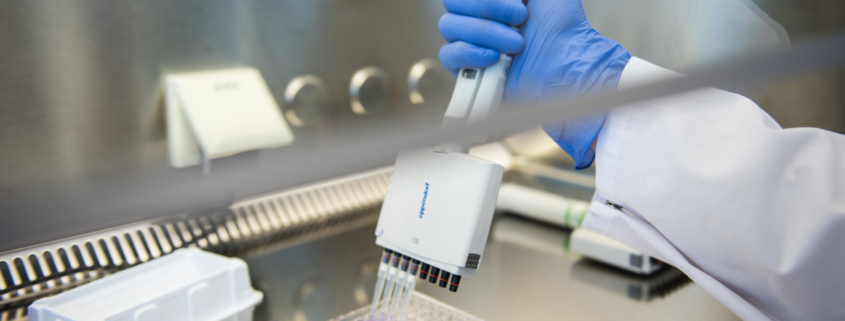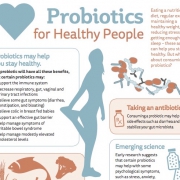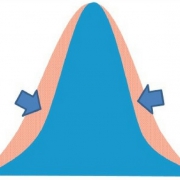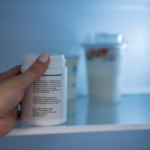Five things scientists should know about the future of probiotics and prebiotics
By Marla Cunningham, Metagenics Global R&D Innovation Manager and 2021 ISAPP Industry Advisory Committee representative
As anyone connected with probiotics and prebiotics knows – there’s a lot happening in this space.
After a well-attended discussion group at the 2019 ISAPP Annual Meeting in Antwerp, a collaboration of 16 industry and academic scientists came together to produce a broad overview of current and emerging trends that were covered in this discussion. Just released online by Trends in Microbiology, the open access paper identifies some top trends across multiple spheres of influence on the future of probiotics and prebiotics.
- Discovery: Prebiotics and probiotics are emerging from unexpected sources – naturally occurring as well as synthesised or engineered. Food, human and animal microbiome-derived probiotics feature heavily in probiotic development through top-down microbiome data-driven approaches as well as physiological target-driven screening approaches. Prebiotic sources have expanded beyond traditional plant sources to include food waste streams, animal gut-derived glycans and mammalian milk as well as increasingly sophisticated synthesis techniques, involving sonication, high pressure, acid, enzyme and oxidation treatments. A growing understanding of the implications of carbohydrate structure on microbial metabolism is driving the emergence of designer prebiotics, as specific substrates for microbes of interest or the production of target metabolites, such as polyphenol-derived bioactives.
- Evaluation: Calls for integrated systems biology -omic approaches to the evaluation of probiotic and prebiotics effects continue to increase, utilising whole genome and metabolite approaches, with a focus on better understanding of mode of action as well as differential host and microbial responses that serve to improve host health.
- Product development: Quality assurance techniques continue to undergo evolution as the challenges of divergent product formats and increasingly complex formulations necessitate innovation in the field. There is a focus on techniques beyond cell culture enumeration for probiotic product verification as well as on the identification of functional markers of probiotic and prebiotic activity, which can be applied in complex food matrices.
- Regulation: Recent regulatory challenges with claim approval are understood to have driven corresponding evolution in clinical science and an increased focus on mechanistic elucidation. However, the converse is also occurring, with the development of novel probiotic species, therapeutics for disease treatment and increasingly microbiome-driven modes of action having implications for regulatory frameworks. This ‘give and take’ between science and regulatory requirements will likely accelerate into the future as the field continues to evolve.
- Implementation: Interest continues to grow in precision and personalised approaches to nutrition and healthcare, especially in the field of microbiome-related interventions where there is significant appreciation of host-to-host variability. The identification of putative microbial signatures of health and disease continues to fuel the development of health-associated microbes as candidate probiotics and as targets for novel prebiotic substrates. Further, a focus beyond microbial composition and into microbial function is driving interest in interventions which can correct metabolomic profiles, such as probiotics with specific enzyme activity to boost synthesis or catabolism of key microbial metabolites in vivo, including purine and monoamine compounds.
These and other trends create a rich and evolving landscape for scientists within the field and provide the promise of a bright future for prebiotics and probiotics.
Read the full paper here
Reference:
Cunningham, M., Azcarate-Peril, M. A., Barnard, A., Benoit, V., Grimaldi, R., Guyonnet, D., Holscher, H. D., Hunter, K., Manurung, S., Obis, D., Petrova, M. I., Steinert, R. E., Swanson, K. S., van Sinderen, D., Vulevic, J., & Gibson, G. R. (2021). Shaping the Future of Probiotics and Prebiotics. Trends in microbiology, S0966-842X(21)00005-6. Advance online publication. https://doi.org/10.1016/j.tim.2021.01.003















